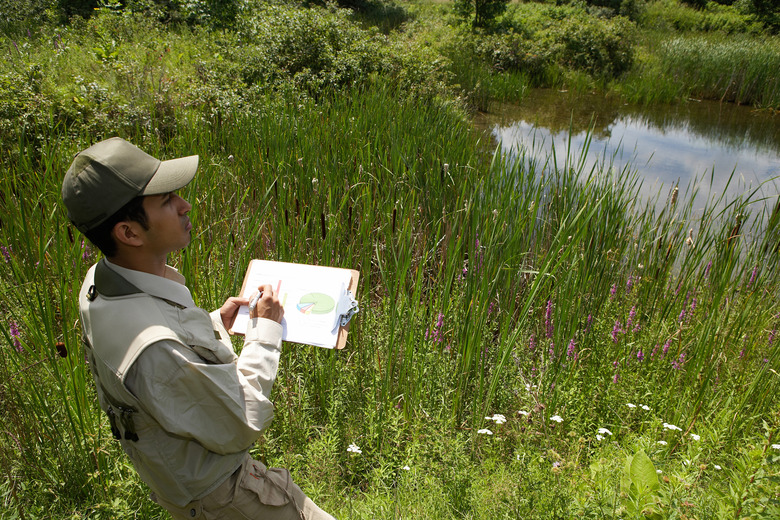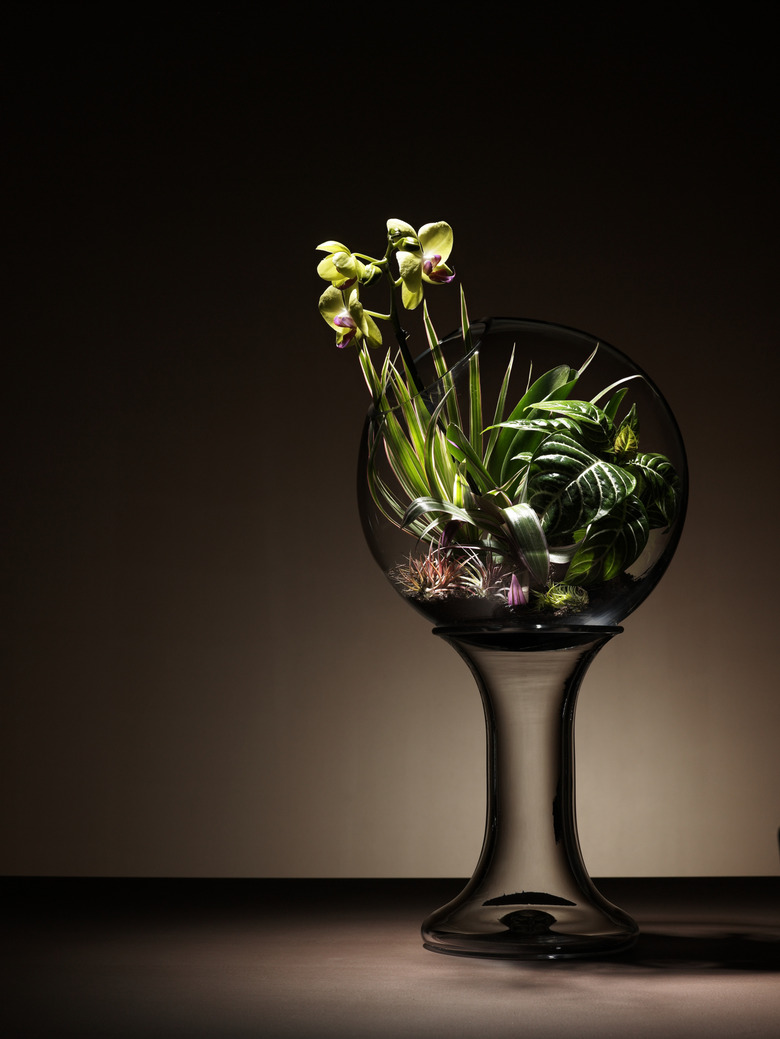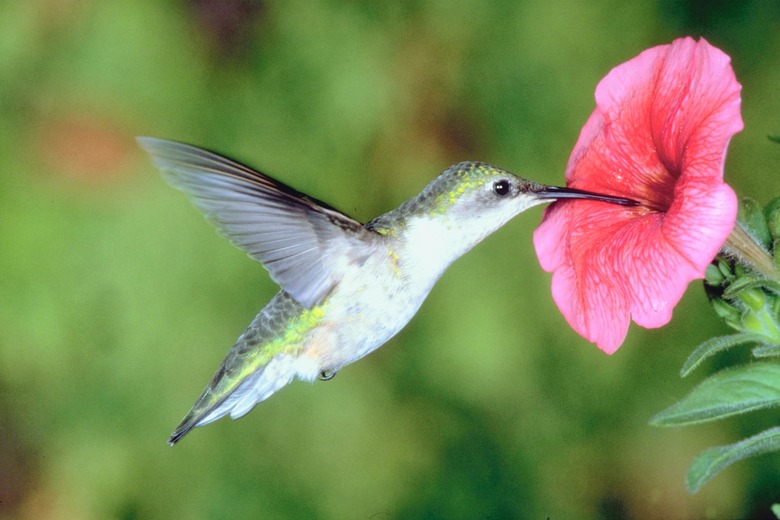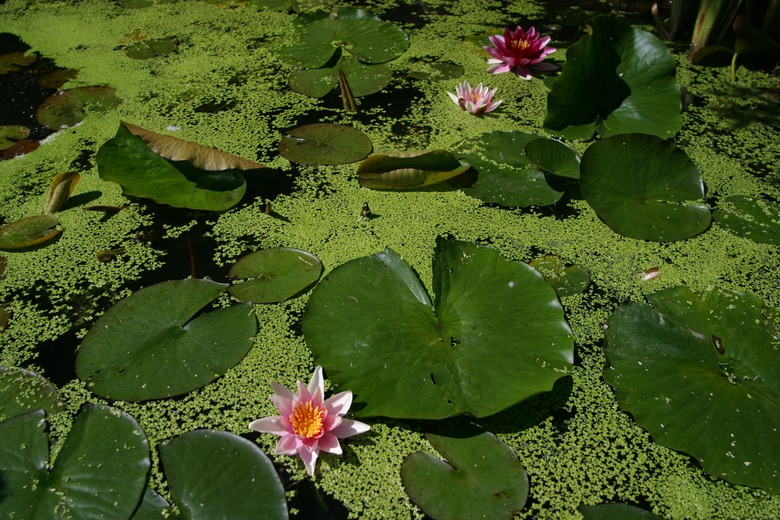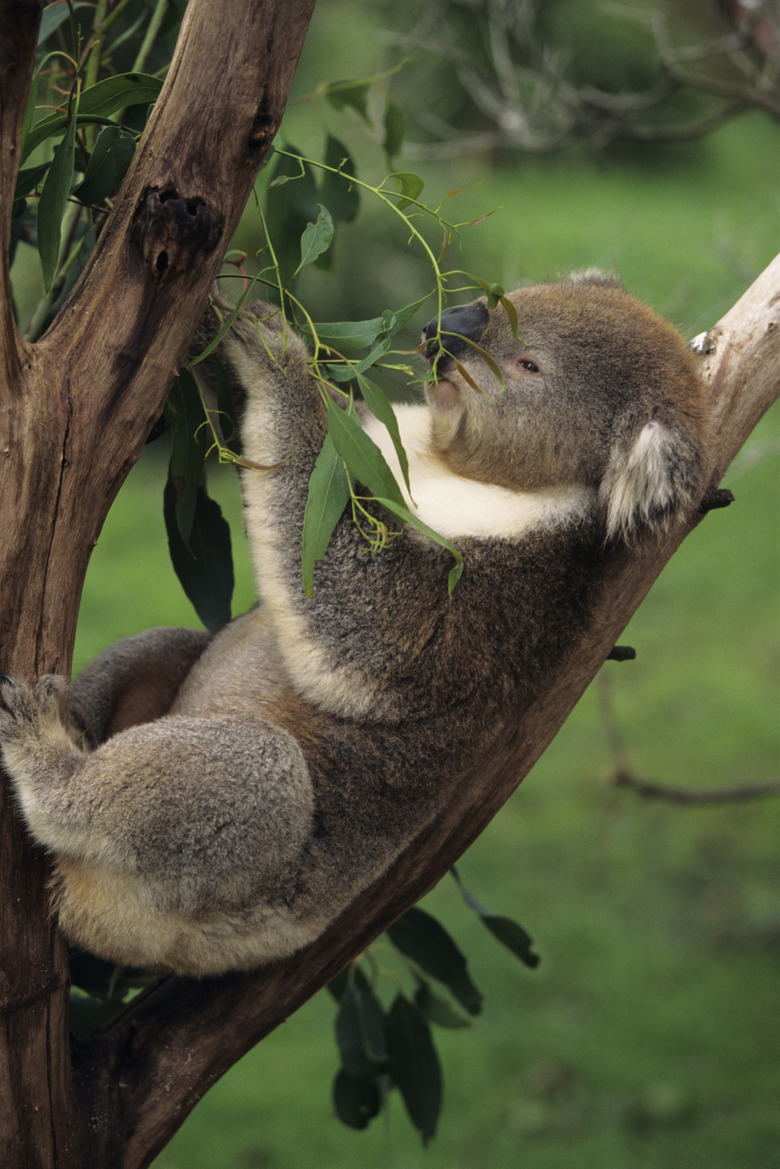Topics For Experiments In Ecology
Ecology is the study of intricate interactions among living and nonliving things and their environment, and the balance of ecology helps determine the very health and well-being of our planet. Designing ecology experiments around something as complex as ecology might sound overwhelming.
But ecology embraces many fascinating areas of science, including ecosystem ecology, animal behavior, population ecology and physiological ecology.
Ecosystem Ecology Experiments
Ecosystem Ecology Experiments
An ecosystem consists of the living, or biotic, and nonliving, or abiotic, parts of an interrelated community. Abiotic aspects of an ecosystem include soil, air, water, sunlight and the chemistry of soil and water. Biotic components include plants, herbivores, carnivores and detrivores.
To illustrate how an ecosystem works, try building two or more identical miniature land or water ecosystems in a large covered jar or aquarium. Provide the necessary components of a typical ecosystem, including:
- Edible plants
- Soil
- Small herbivores
- Detrivores
- Pond water
- Air
- A light source
Alter one factor in the ecosystem, such as the amount of light or water it receives, while keeping all other factors the same to see what changes occur in the mini ecosystem. Observe the interactions between organisms and test for changes in animal health, water acidity and other detectable changes.
Animal Behavior
Animal Behavior
The animals around us are entertaining and fascinating to observe. Using a bit of scientific discipline, it is possible to turn those observations into a science experiment.
Try setting up clear glass hummingbird feeders containing sugar water in different colors and observe which feeders the birds seem to prefer. What connection might this have to the adaptations the hummingbird has developed to survive in its environment?
You could go even smaller and take it into a classroom by studying small and easily managed animals like insects or hermit crabs. Set up a living area for these animals and take daily observations.
Create some ecology hypothesis ideas before making observations and see if the reality lines up with your hypothesis. Take notes on how they interact with each other, what type of food they prefer, where they stay in their enclosure and more.
Did your hypothesis hold up to the observations you made? Why or why not?
Population Ecology Projects
Population Ecology Projects
Population ecology examines factors that affect the population of a certain species, such as food availability, temperature, predators or overcrowding.
To do a population ecology study, tally a food source — for example, plants — in a measured area and record changes over time in the population of consumers.
Or place different numbers of a species of plant or small animal — for example, duck weed or crickets — in two or more identical mini aquariums or terrariums. Provide them the same amounts of food, space and light, and then observe how population density affects their population growth.
You can also create a project that looks at data already collected by other scientists. Go online and find long-term population data on wolves in a national park, for example. Then, create a hypothesis as to why the population changed or stayed the same over time. Do other research to see if your hypothesis is supported.
Physiological Ecology Experiments
Physiological Ecology Experiments
A physiological ecologist studies how an organism's body is adapted to its environment and how changes in the environment — such as temperature, chemicals or resource availability — affect it. To study the physiological ecology of an organism, design an experiment to observe the effect of rising temperatures — such as those caused by climate change — on the growth of that organism in a controlled laboratory environment.
Or observe the effects of acid rain on a species of plant in a laboratory setting, using vinegar in water to simulate rain acidity caused by coal-burning power plants.
Cite This Article
MLA
Carter, Kari Norborg. "Topics For Experiments In Ecology" sciencing.com, https://www.sciencing.com/topics-experiments-ecology-9307/. 19 June 2019.
APA
Carter, Kari Norborg. (2019, June 19). Topics For Experiments In Ecology. sciencing.com. Retrieved from https://www.sciencing.com/topics-experiments-ecology-9307/
Chicago
Carter, Kari Norborg. Topics For Experiments In Ecology last modified August 30, 2022. https://www.sciencing.com/topics-experiments-ecology-9307/
